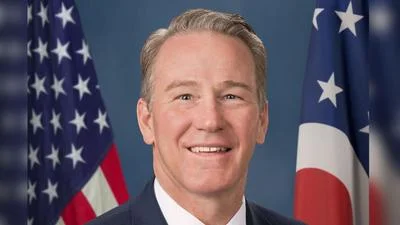Amy Ronshausen, executive director, Drug Free America Foundation, left, and Ann Carlson, activing administrator, National Highway Traffic Safety Administration | Provided Photo / NHTSA.gov
Amy Ronshausen, executive director, Drug Free America Foundation, left, and Ann Carlson, activing administrator, National Highway Traffic Safety Administration | Provided Photo / NHTSA.gov
States, including Ohio, that have legalized high-THC marijuana, have seen a 32 percent higher frequency of marijuana-impaired driving than in states that have not legalized it, according to a new report released by the Drug Free America Foundation (DFAF).
“The loosening of marijuana restrictions in states that have legalized the drug has introduced a more permissive culture,” said Amy Ronshausen, executive director of DFAF. “At the same time, little effort has been made to address the potential risks of marijuana-impaired driving.”
“Americans are clearly responding to the policy enactment of marijuana programs, with self-reported past-year marijuana use skyrocketing from 10.4 percent in 2002 to 19.3 percent in 2021,” Ronshausen said.
The study analyzed eighteen states with less restrictions on high-THC marijuana and DFAF said this “suggests that the loosened marijuana policies in the 18 less restrictive states resulted in a million more cases of marijuana-impaired driving.”
DFAF said the report is being released in conjunction with a "If You Feel Different, You Drive Different. Drive High, Get a DUI" campaign being coordinated by the National Highway Traffic Safety Administration.
Eight states — Alaska, California, Colorado, Maine, Massachusetts, Nevada, Oregon, and Washington — adopted “full recreational marijuana programs” in 2017, according to the report.
Another ten states — Connecticut, Delaware, Florida, Illinois, Maryland, Minnesota, New York, Ohio, Rhode Island, and Vermont — had “enacted higher-THC medicinal programs.
“Adding to the concern is the fact that fatalities in the U.S. from marijuana-impaired drivers have risen dramatically between 2000 and 2018, rising from 9 percent of all fatal crashes to 21.5 percent,” said DFA’s press release.
Founded in 1976, DFAF promotes policies opposing illegal drug use and the loosening of restrictions on cannabis and other drugs.






 Alerts Sign-up
Alerts Sign-up